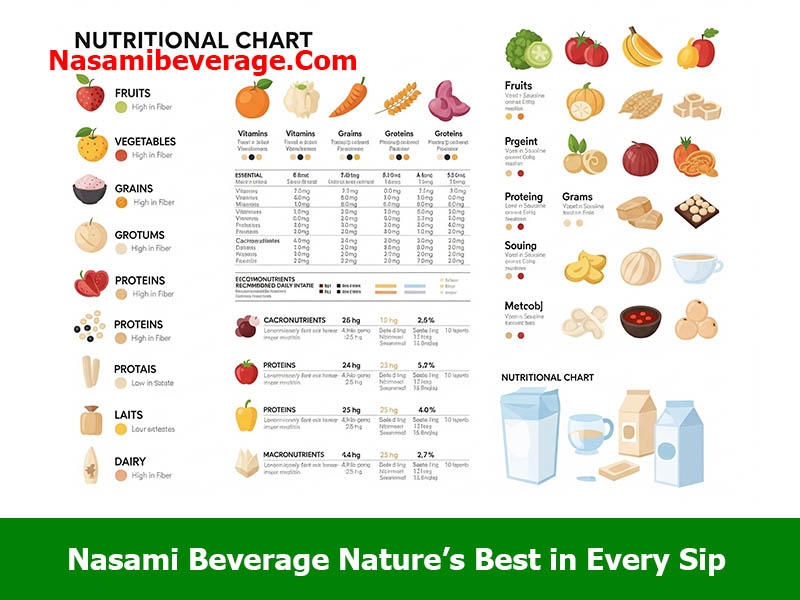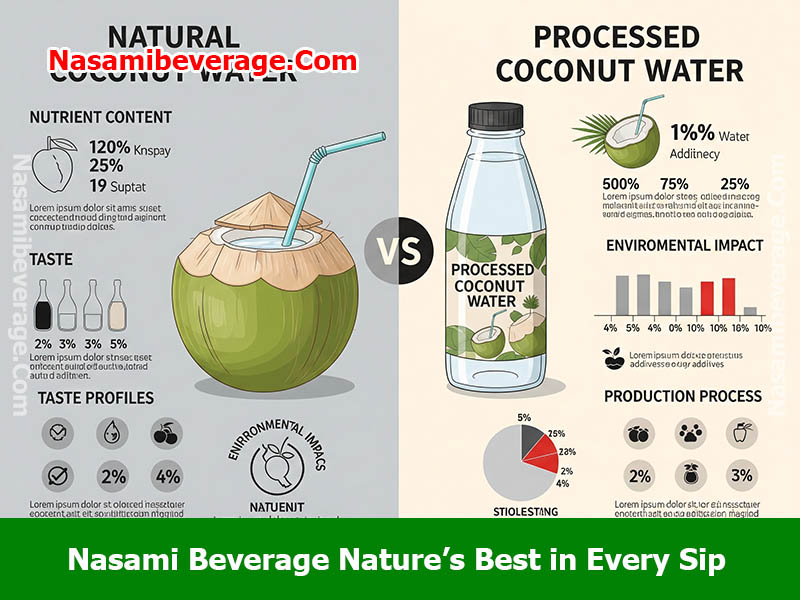High blood pressure, a prevalent health issue globally, affects millions. Many individuals are exploring natural avenues alongside conventional treatments to manage their condition effectively. Among the various dietary considerations, the question often arises: can coconut water lower blood pressure? This tropical beverage, praised for its refreshing taste and natural hydration properties, has garnered attention for its potential cardiovascular benefits. This comprehensive guide aims to explore the scientific evidence, nutritional components, benefits, and important considerations surrounding coconut water and its role in blood pressure management for people in the US, UK, Canada, and beyond.
How does coconut water affect blood pressure?
Understanding blood pressure involves two numbers: systolic, measuring pressure in your arteries when your heart beats, and diastolic, measuring pressure when your heart rests between beats. Elevated levels in either can signify hypertension. Coconut water is believed to influence these levels primarily through its unique composition.
The way how coconut water works to reduce high blood pressure is multifaceted, involving mechanisms that support vascular health and fluid balance within the body. Some research indicates that regular consumption of coconut water may lower systolic blood pressure, and to a lesser extent, potentially impact diastolic blood pressure as well, although individual results can vary.
It is not a replacement for prescribed medical treatments but is viewed by some as a supportive dietary component.
The science: Key nutrients in coconut water for blood pressure regulation
The potential of coconut water to influence blood pressure stems largely from its impressive nutrient profile. Several key minerals found in this natural drink play crucial roles in cardiovascular health, making it a subject of interest for those looking into what makes coconut water potentially good for hypertension. The fact that does coconut water have electrolytes in significant amounts is central to this discussion.
The power of potassium in coconut water
One of the most significant components of coconut water is potassium. An average 240ml or 8oz cup of pure coconut water can provide a substantial amount of this vital mineral. Potassium in coconut water helps regulate blood pressure by counteracting the effects of sodium in the body.
High sodium intake can lead to fluid retention and increased blood pressure. Potassium helps the kidneys excrete excess sodium, thereby potentially lowering blood pressure. Furthermore, potassium helps ease tension in the walls of blood vessels, which also contributes to blood pressure reduction. Many Western diets are lower in potassium and higher in sodium, making sources like coconut water particularly relevant.

Magnesium’s contribution to vascular health
Beyond potassium, coconut water’s magnesium contributes to vascular health. Magnesium is involved in numerous bodily processes, including muscle and nerve function, blood glucose control, and blood pressure regulation. It helps blood vessels relax and may improve endothelial function, which is the health of the inner lining of blood vessels.
While not as high in magnesium as it is in potassium, the magnesium content in coconut water adds to its profile as a drink that is a source of electrolytes for heart health. The combined action of these minerals is what prompts ongoing scientific studies to investigate coconut water’s BP effects, aiming to provide more definitive conclusions about its efficacy and optimal use.
Exploring the benefits of coconut water for hypertension management
The interest in coconut water extends beyond its direct nutrient impact on blood pressure. Its role as a natural hypertension remedy is often considered within a broader context of healthy living. For individuals with hypertension seeking information on coconut water benefits, it offers several appealing characteristics.
It is naturally refreshing, and understanding does coconut water help with hydration is key; its hydrating properties are well-known and beneficial for overall health, which indirectly influences blood pressure. It is also typically lower in sugar compared to many processed fruit juices and sodas.
Incorporating coconut water as part of a heart healthy diet can be a positive step. Such a diet usually emphasizes whole foods, fruits, vegetables, lean proteins, and healthy fats. The electrolytes in coconut water support overall cardiovascular function.
While exploring the various advantages of drinking coconut water beyond blood pressure reduction is valuable, its potential to support healthy blood pressure naturally remains a primary point of interest for many seeking dietary strategies for hypertension.
Important considerations: Risks and interactions of coconut water for blood pressure
While coconut water offers potential benefits, it is crucial to be aware of certain risks and interactions, especially for individuals with pre existing health conditions or those on medication. The idea of coconut water vs blood pressure medications is not about replacement; medication prescribed by a doctor should always be prioritized.
Interactions with blood pressure medications
A significant concern is that coconut water can interact with antihypertensive drugs. Because coconut water may lower blood pressure, combining it with medications designed for the same purpose could potentially cause blood pressure to drop too low, a condition known as hypotension.
Symptoms can include dizziness, lightheadedness, and fainting. Therefore, individuals on BP medication should exercise caution. It is essential to discuss the consumption of coconut water with a healthcare provider to avoid adverse effects. The potential dangers of coconut water for blood pressure patients are real if not managed with informed care.
Kidney health and potassium levels (Hyperkalemia)
Coconut water is rich in potassium. While beneficial for many, it can pose risks for individuals with kidney disease. Damaged kidneys may not be able to remove potassium effectively from the blood, leading to a dangerous condition called hyperkalemia (high potassium levels).
Symptoms can include weakness, fatigue, and irregular heartbeat. Therefore, coconut water has considerations for kidney health that cannot be overlooked. People with any kidney impairment should consult their doctor before adding significant amounts of coconut water to their diet.
Other potential side effects
For some individuals, coconut water consumption side effects related to blood pressure or general well being might include mild digestive upset. Another important factor is the sugar content, so checking how many calories in coconut water from different brands is wise.
While natural, unsweetened coconut water is relatively low in sugar, some commercially packaged brands contain added sugars, which can negate health benefits and contribute to weight gain if consumed excessively.
Always read labels carefully. Additionally, some medical advice suggests avoiding coconut water around the time of surgery due to its potential effects on blood pressure control during and after surgical procedures.
Using coconut water for blood pressure: Dosage and best choices
When considering coconut water for its potential blood pressure benefits, practical aspects like dosage and product selection are important. While there isn’t a universally agreed upon recommended amount of coconut water for hypertension, some small studies have explored specific quantities, such as around 300ml consumed twice daily.
However, this should not be taken as a general guideline without professional medical advice, as individual needs and health conditions vary greatly. Moderation is key.
Choosing the right coconut water
The type of coconut water you choose significantly matters. Natural coconut water differs from sweetened coconut beverages. Always opt for 100% pure, unsweetened coconut water. Check the ingredient list to ensure there are no added sugars, artificial sweeteners, or preservatives, which can diminish its health value.
The fresh coconut water nutritional profile for BP control is generally considered superior to highly processed versions. When possible, fresh coconut water directly from the young, green coconut is ideal, but if purchasing packaged versions, prioritize those with minimal processing and no additives.
It’s also important to know how can I tell if coconut water has gone bad to ensure you’re consuming a safe product. Brands like Vita Coco or Zico often offer unsweetened options, which are preferable.

Some might wonder about coconut water vs. other drinks for blood pressure management. While options like hibiscus tea or beet juice also show promise, coconut water offers a unique electrolyte profile alongside a refreshing taste, making it a popular choice for hydration and potential BP support.
Frequently asked questions about coconut water and blood pressure
Can coconut water replace my blood pressure medication?
No, coconut water should not replace any prescribed blood pressure medication. It may offer supportive benefits, but you must always consult your doctor before making any changes to your treatment plan. Coconut water poses risks for individuals on BP medication if not discussed with a healthcare professional.
How much coconut water is safe to drink daily for blood pressure?
There is no one size fits all answer regarding a safe daily amount. It depends on your overall health, kidney function, and any medications you take. Moderation is important. Discuss an appropriate amount with your healthcare provider.
Is coconut water good for everyone with high blood pressure?
Not necessarily. Individuals with kidney problems or those taking certain medications, including some blood pressure drugs or potassium sparing diuretics, should be particularly cautious due to its high potassium content.
Does the type of coconut water matter for blood pressure benefits?
Yes, absolutely. Pure, unsweetened coconut water is the preferred choice. Avoid varieties with added sugars or artificial ingredients, as these can counteract potential health benefits.
What are the main nutrients in coconut water that help with blood pressure?
The primary nutrient in coconut water that is believed to help with blood pressure is potassium. Coconut water contains high potassium, which can help balance sodium levels and relax blood vessels. Magnesium also plays a supportive role.
Coconut water shows considerable promise as a dietary component that may help support healthy blood pressure levels, largely due to its significant potassium content and other beneficial electrolytes. The evidence suggests that drinking coconut water may lower systolic blood pressure for some individuals.
However, it is not a standalone cure or a replacement for medical treatment. Understanding the impacts of coconut water on blood pressure levels requires a balanced view, acknowledging both its potential benefits and important considerations, such as interactions with medications and suitability for individuals with kidney conditions.
A holistic approach to managing high blood pressure always involves a healthy diet, regular physical activity, stress management, and adherence to medical advice. If you are considering using coconut water to help manage your blood pressure, it is paramount to discuss this with your healthcare professional.
They can provide personalized advice based on your health status and help you integrate it safely and effectively into your overall wellness plan. For more insights into various beverage options and their health implications, resources like Nasami Beverage can offer additional information.